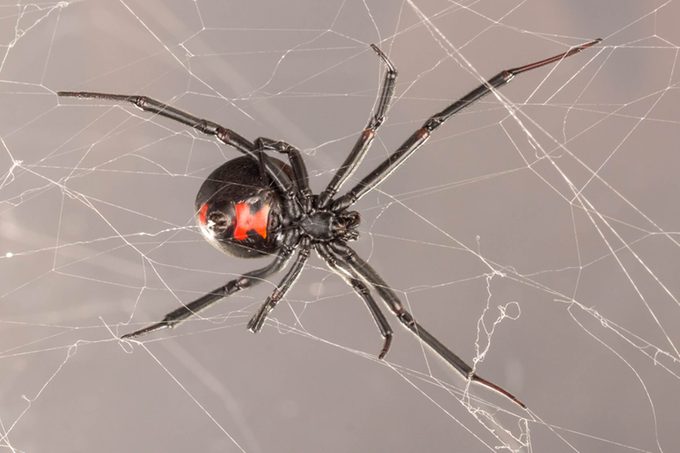Top 12 Summer Bugs to Avoid and How to Stay Safe

Common Summer Bugs and How to Stay Safe
Summer is a time for fun, relaxation, and outdoor activities. However, it also brings with it a variety of bugs that can pose serious threats to your health. From painful bites to life-threatening conditions, these pests can be a real nuisance. Understanding the dangers and how to protect yourself is essential.
Black Widow Spider
Black widow spiders are easily recognizable by their black color and two red triangles on their back. These spiders are about the size of a paper clip and have venom that is 15 times stronger than a rattlesnake’s. While fatalities are rare, their venom can cause muscle aches, nausea, and breathing difficulties. Female black widows are more likely to bite in defense.
How to Protect Yourself: - Reduce clutter in basements and garages to eliminate hiding spots. - Wear gloves when cleaning to avoid accidental contact.
Tarantulas
Tarantulas are large spiders that can live up to 30 years. They are generally harmless, though their venom can cause pain and rashes at the site of a bite. If you encounter one, it's best to relocate it using a plastic container and cardboard.
How to Protect Yourself: - Keep your home neat and organized to discourage tarantulas from settling in. - Wear protective clothing when working in areas where they might be present.
Africanized Bees
Africanized "killer" bees are similar in appearance to European honeybees but are slightly smaller and have a golden color with darker bands. Although their venom isn’t more dangerous, they tend to attack in larger numbers. If you’re attacked, run in a zig-zag pattern to shelter.
How to Protect Yourself: - Keep food and garbage sealed to avoid attracting bees. - Avoid wearing dark colors, floral prints, or sweet-smelling perfumes.
Mosquitoes
There are over 170 species of mosquitoes in North America. Some, like the Culex and Asian Tiger mosquito, spread diseases such as malaria, West Nile virus, and Zika. Using insect repellent containing DEET is the best way to prevent bites.
How to Protect Yourself: - Use EPA-registered insect repellents. - Eliminate standing water around your home to prevent breeding.
Red Fire Ants
Red fire ants are reddish-brown and known for their painful stings. They can cause allergic reactions in some people. They often nest near foundations, in landscaping, and on golf courses.
How to Protect Yourself: - Avoid their mounds and keep your home sealed to prevent entry. - Seal cracks and crevices to block their access.
Wasps
Paper wasps come in various colors and will sting if their nest is disturbed. Loud equipment like mowers can trigger an attack. If someone in your family is allergic, it's wise to have nests removed.
How to Protect Yourself: - Close gaps and holes around your home to prevent nests. - Be vigilant in the spring and remove nests early.
Brown Recluse Spider
Brown recluse spiders are small, with a violin-shaped mark on their body. Their bites are often misdiagnosed and can lead to skin conditions. They are usually docile but may bite if threatened.
How to Protect Yourself: - Seal openings in walls, baseboards, and plumbing. - Shake out clothes and shoes before wearing them, especially if stored in dark areas.
Scorpions
Scorpions are found in warm, dry climates and are particularly dangerous in the Southwest. Their stings can cause swelling, rash, or more severe reactions.
How to Protect Yourself: - Seal cracks and voids around your home. - Eliminate standing water and turn off outdoor lights at night.
Ticks
Ticks are arachnids that can carry Lyme disease and other serious illnesses. They attach to exposed skin and can go unnoticed for hours.
How to Protect Yourself: - Check for ticks after being outdoors. - Use tick repellents and tuck pants into socks while hiking.
Centipedes and Millipedes
Centipedes can deliver painful bites, while millipedes release a substance that irritates the skin. They are attracted to moisture and debris.
How to Protect Yourself: - Reduce moisture around your home. - Remove leaf piles and seal cracks to prevent entry.
Horseflies
Horseflies are common in rural areas and typically feed on animals. They don’t usually pose a threat to humans.
How to Protect Yourself: - Use window screens and wear light-colored clothing. - Apply insect repellent when outdoors.
Kissing Bugs
Kissing bugs can transmit Chagas disease through their bites. They often hide in homes and bite while people sleep.
How to Protect Yourself: - Seal cracks and install door sweeps to keep them out. - Remove debris from your yard to reduce their habitat.
By taking these precautions, you can enjoy the summer months without the worry of dangerous bug bites. Stay informed and proactive to protect yourself and your family.
Post a Comment for "Top 12 Summer Bugs to Avoid and How to Stay Safe"
Post a Comment